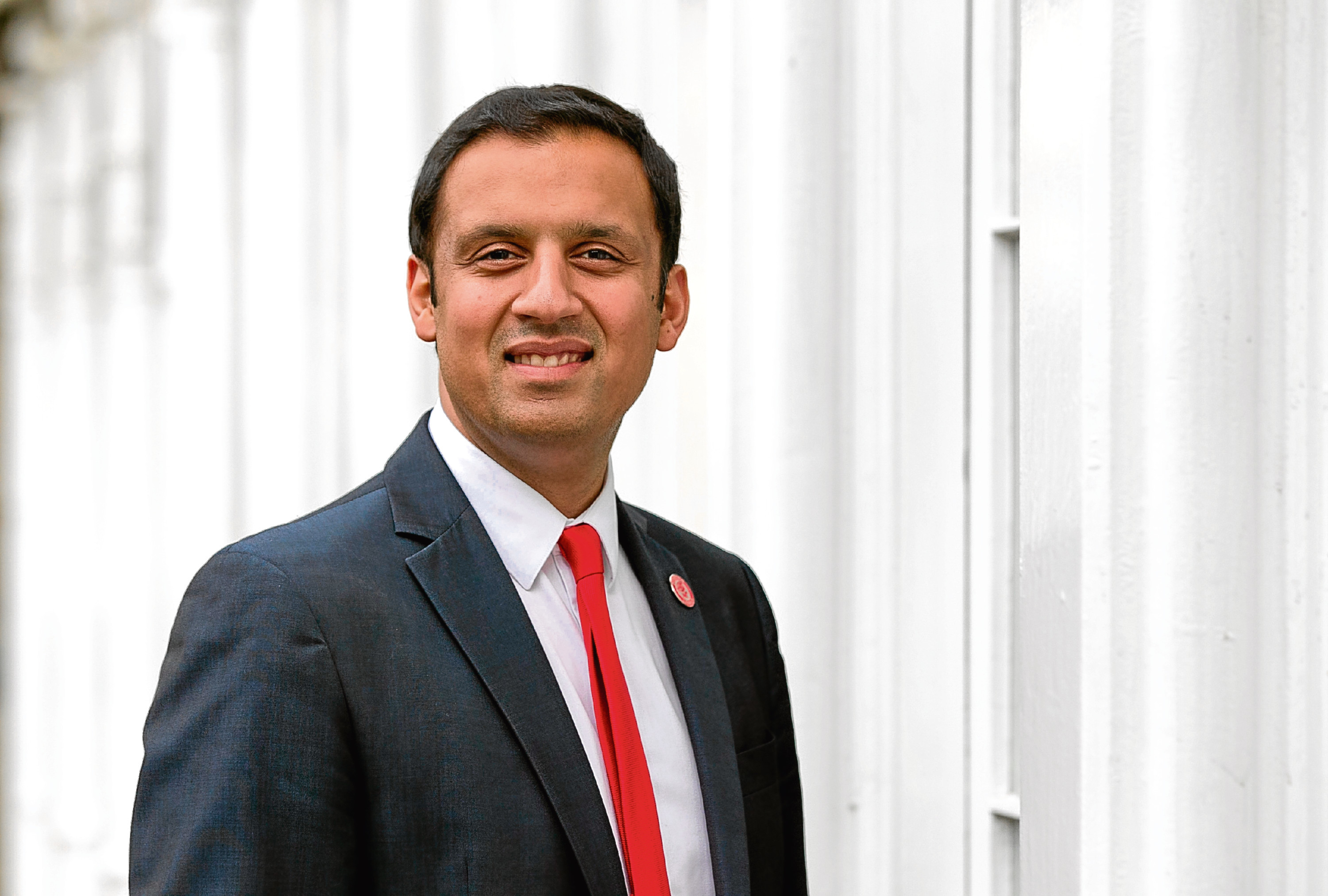On the evidence of his political career to date, Scottish Labour leadership contender Anas Sarwar is probably not the saviour his party is seeking.
In fact, he is not half as impressive as the last Labour leader in Scotland, Kezia Dugdale who, despite a torrid time in the role, left the party in better shape than she found it.
Although placed in an impossible position in the end by the Corbynistas, she had presided over an increase in the number of Scottish Labour MPs at Westminster and could almost hold her head high when she departed.
Mr Sarwar, his party’s spokesman on health, has not yet distinguished himself in politics, apart from doing a reasonable job exposing the Nationalists’ failings in the NHS. Anyone could have done the same, though, given the SNP government’s appalling record in this department.
The Glasgow MSP’s business dealings also leave much to be desired, claim his detractors. Relinquishing £4.8 million of shares in his family’s company will not improve his reputation, or that of the firm, which allegedly does not pay the minimum wage, does not recognise trade unions and, most unforgivably, makes a profit from tobacco sales.
To commit one of Mr Sarwar’s alleged sins would cause problems for any Labour leadership candidate, but in the current climate he surely doesn’t stand a chance. Why he wanted to put his name forward is a mystery and even he must now be questioning his decision as his leadership bid comes unstuck. However, slim as his hopes are, while he remains in the contest he might have expected the same treatment as his opponent, especially by his own party.
But, as last week’s exchanges during First Minister’s questions showed, he is not going to get a fair crack of the whip.
Although it was Nicola Sturgeon who mocked his millionaire status, it was acting Labour leader Alex Rowley who is widely believed to have fed her the lines. Mr Rowley – the former leader of Fife Council and a supporter of Mr Sarwar’s rival, Richard Leonard (Mr Rowley’s daughter is Leonard’s campaign manager) – won’t admit he deliberately undermined his parliamentary colleague – but he has also refused to deny it.
When he told Ms Sturgeon the SNP “sides with the millionaires rather than with the millions”, it was clear where the jibe was aimed. She duly provided the punchline: ‘It was really unfair of Alex Rowley to personalise the debate by bringing Anas Sarwar into it” – and the irreversible damage was done.
Mr Sarwar had been the bookmakers’ favourite to replace Kezia Dugdale but the national party will not countenance him, and not because of his wealth and privilege.
Mr Leonard and Mr Rowley are hard Left allies of Jeremy Corbyn and, as Kezia Dugdale found to her cost, this is the only criteria that now matters in the Labour Party.
What are members in Scotland to make of the choice before them? They now know everything about Mr Sarwar, thanks to the vicious campaign against him by the SNP and Labour, but they know little about Mr Leonard.
Mr Sarwar is probably motivated by a belief in his own destiny. The son of Mohammed Sarwar – one-time Labour MP and governor of Punjab – he lacks his father’s guile and aptitude for the political game. But he seems to have inherited a sense of entitlement, with a conviction that offering himself up for high office is enough to secure victory.
While his personal deficiencies might have been ruthlessly exposed, they are not exactly unique in Labour’s history. Millionaires are not unheard of in the party’s ranks, and the list of former (and present) heavyweights who have either been educated privately, sent their children to fee- paying schools or both is too numerous to mention. Labour has long been littered with hypocrites.
Richard Leonard is also the product of a public school, though he seems to have little to show for it. A poor public speaker, his support comes from the unions which he has assiduously courted and for whom he worked as an organiser.
It is difficult to discover his motivation because until his recent rise he has refused to talk to the press, but his apparent unfitness for the job is irrelevant since he has aligned himself with Mr Corbyn.
The march of the Labour Left in England has indisputably infiltrated Scotland where, following a change in party rules, it is possible to pay £12 for a say in the leadership battle. A similar move enabled people to vote for Mr Corbyn in 2015 with a £3 fee, sparking accusations that Tories were signing up en masse to destroy Labour.
Labour members in Scotland, who have seen too many leaders come and go over the past decade, are faced with an uninspiring choice. But worse than that, the outcome will be decided, if it hasn’t already been, in London.
